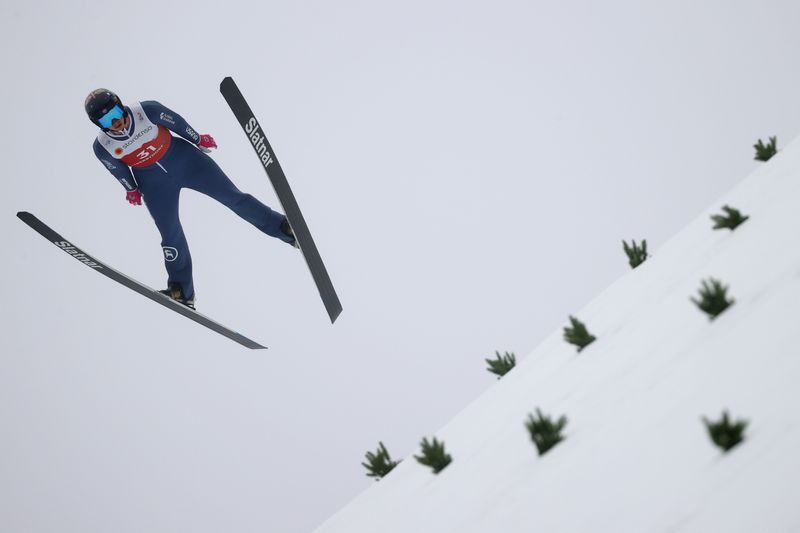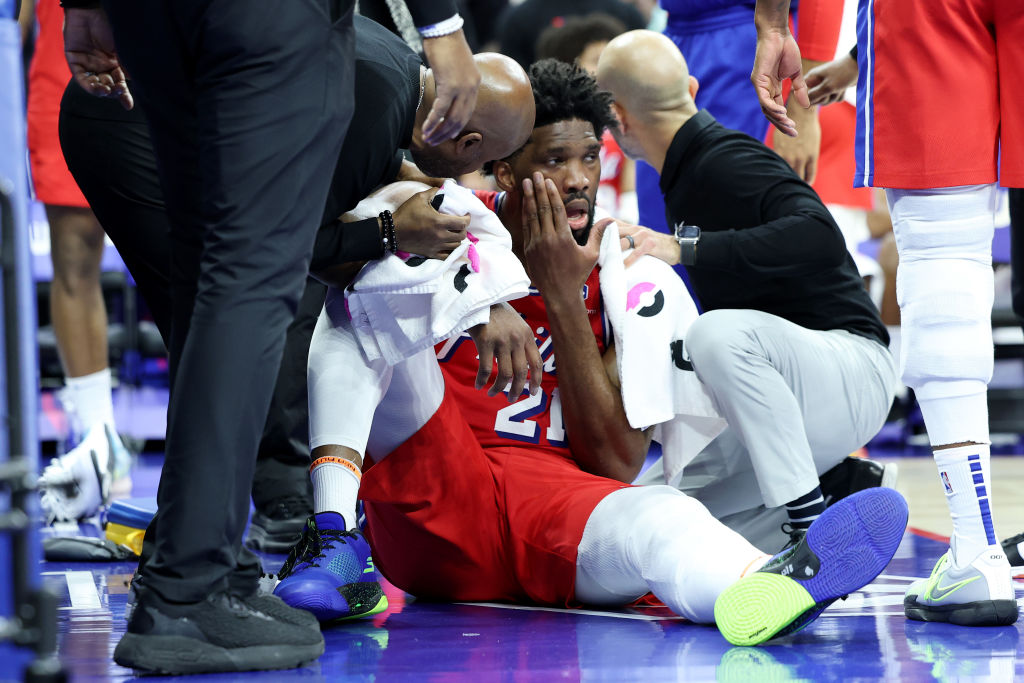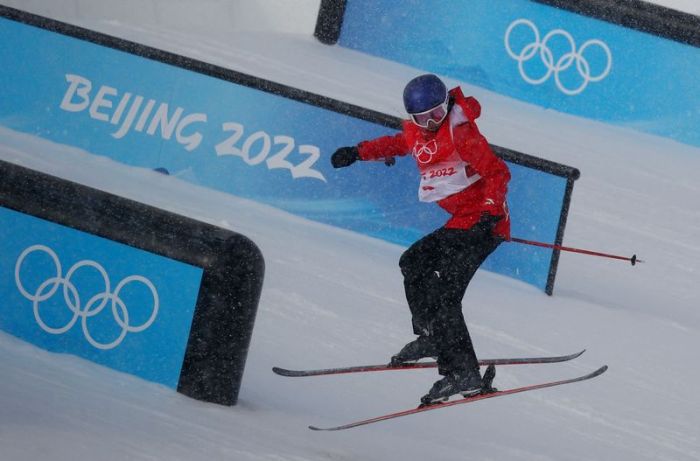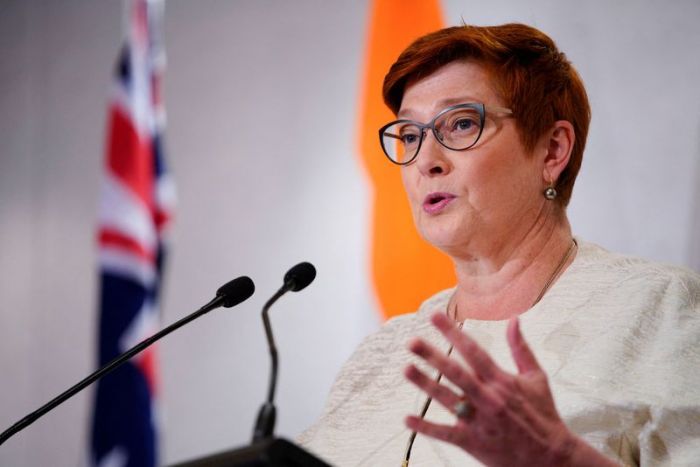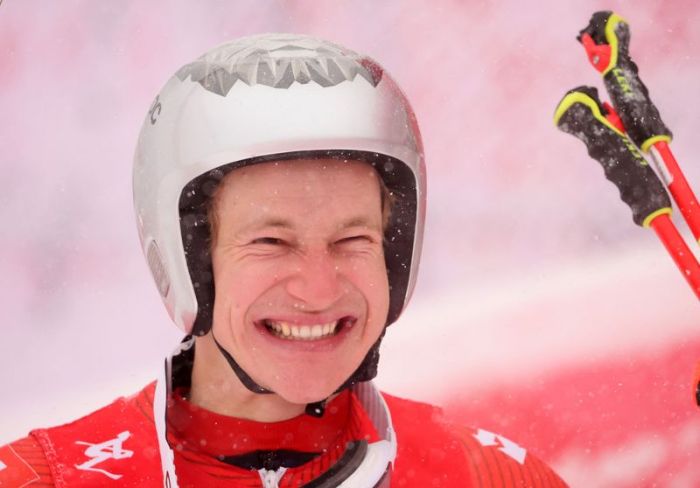ZHANGJIAKOU, China (Reuters) – Tara Geraghty-Moats will watch the Nordic combined large hill final on Tuesday but it will be with gritted teeth as the World Cup winner again contemplates the injustice of women being excluded from her chosen sport at the Olympics.
The American did tune in for last week’s opening event and could not help but be caught up in the excitement of German Vinzenz Geiger’s incredible late surge to glory.
“It was an awesome race and when I see a lot of the people I’ve trained or competed with, or my friends, at the Olympics, first off, I’m really proud of them and it’s really amazing to see them there,” Geraghty-Moats told Reuters in an interview.
“But, yeah, I can’t watch them without thinking ‘why am I not there? Why don’t I get a chance for a medal? Why I don’t have this experience?’ It’s very bizarre.”
The bald reason is that the International Olympic Committee decided in 2018 that women’s Nordic combined was not a developed-enough sport to take a slot in Beijing – leaving it as the only Winter Olympic discipline not to have a women’s event.
The sport’s governing body the FIS disagrees, and introduced a World Cup in 2020, which Geraghty-Moats won, albeit in a season decimated by COVID-19.
“The problem with women’s Nordic combined is that the IOC is treating it like a new sport and it’s not,” Geraghty-Moats said from her training base in Germany.
“It’s a sport that has been in the Games for the better part of 100 years and instead of just fixing the gender equality issue, the IOC has decided to treat women’s Nordic combined as a completely new sport,” she said.
“They are saying it’s a niche sport, which is a strange argument given that there are more women competitors than say for luge or aerial skiing. The Olympics has niche sports and that’s one of the things that make it special. That is not a valid excuse to have gender inequality in the Games.”
The IOC is likely to discuss the lineup for the 2026 Games in Milan-Cortina this June but Geraghty-Moats is not sure things are about to change.
“I’m not confident at all,” she said of an Olympic inclusion. “I’m cautiously optimistic but I remember when everyone thought women’s ski-jumping was a shoo-in for Vancouver but it didn’t get in until 2014.
“Nordic combined is completely different now from when the IOC said no. Since then there’s been a World Cup and a world championships and we’ve met all the requirements. I just wish the IOC had had more faith in our ability to develop the sport – the trends were looking very good even in 2018.”
Geraghty-Moats has always kept her hand in across the various Nordic disciplines, competing in separate cross-country, ski-jumping and biathlon events and last year, at the age of 28, found herself at something of a career crossroads and decided to switch to biathlon.
The lack of financial and logistical support available from USA Nordic combined, and the lack of sponsorship opportunities in a non-Olympic sport, left her continually having to fund herself and unable to prepare properly for races, but the backing of USA Biathlon has made a professional career viable again.
“I have a lot more opportunities to compete internationally and, of course, I have a shot at the Olympics in biathlon if I continue to work really, really hard,” she said, fresh from her latest outing in the second-tier IBU Cup.
It has been tough for Geraghty-Moats to turn her back on the sport she fell in love with as a youngster – something of an unusual passion for someone brought up in north-eastern United States rather than in its northern European heartlands.
“Nordic combined has always just been the glove that fit for me,” she said. “I absolutely love ski jumping. I love the thrill of being in the air and the laser focus it takes. But I also loved the aerobic exercise that made me feel strong and really satisfied to push my body in an endurance sport.
“I love skiing, it is my passion and life but it is also my livelihood and I have to make strategic decisions if I want to continue being a high level athlete.
“Switching sports was an incredibly good strategic choice for the longevity of my skiing career but I love Nordic combined and my love for that sport will always continue.” (This story corrects to fix spelling error in paragraph 16)
(Reporting by Mitch Phillips, editing by Michael Perry/Peter Rutherford)

